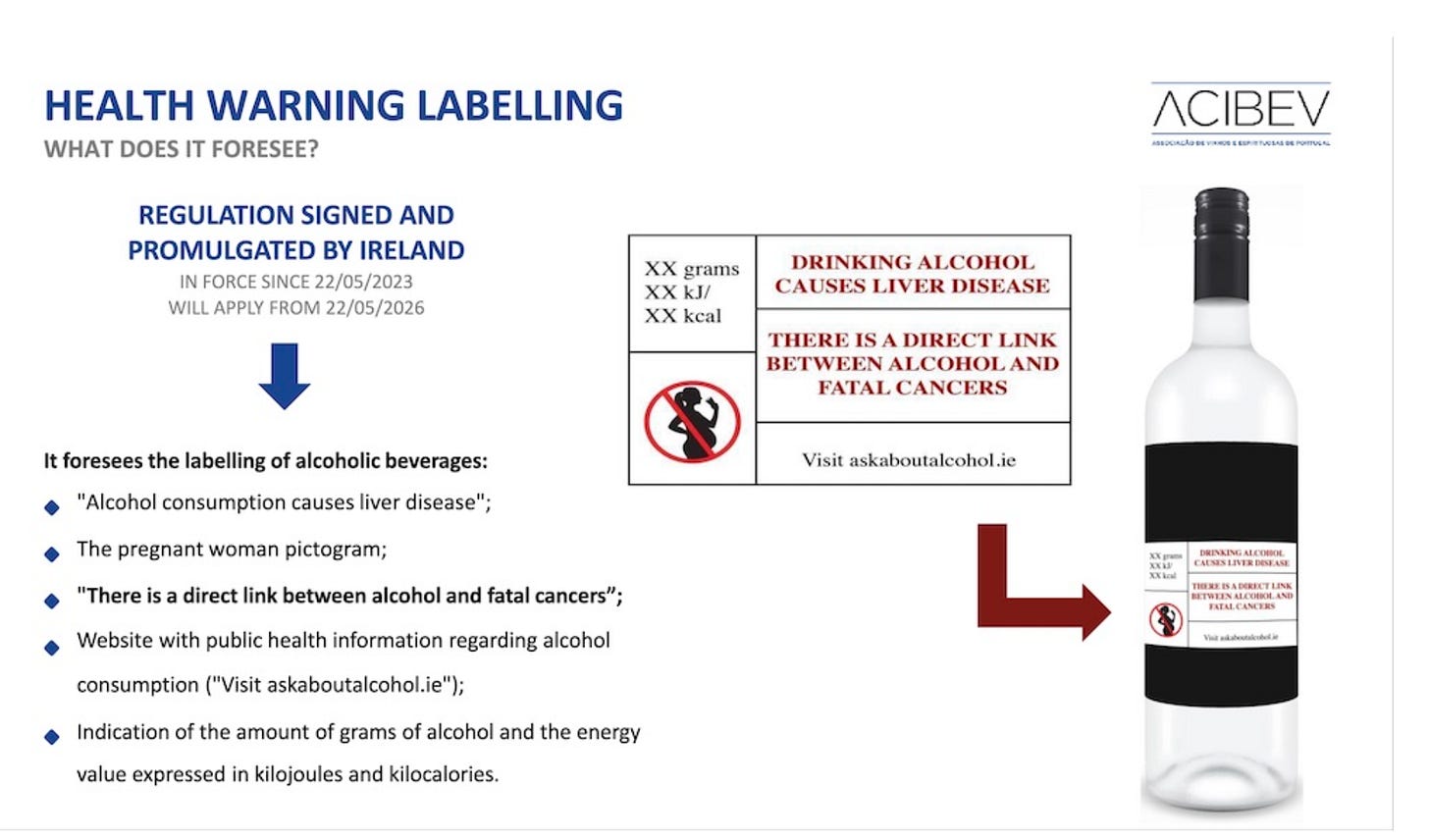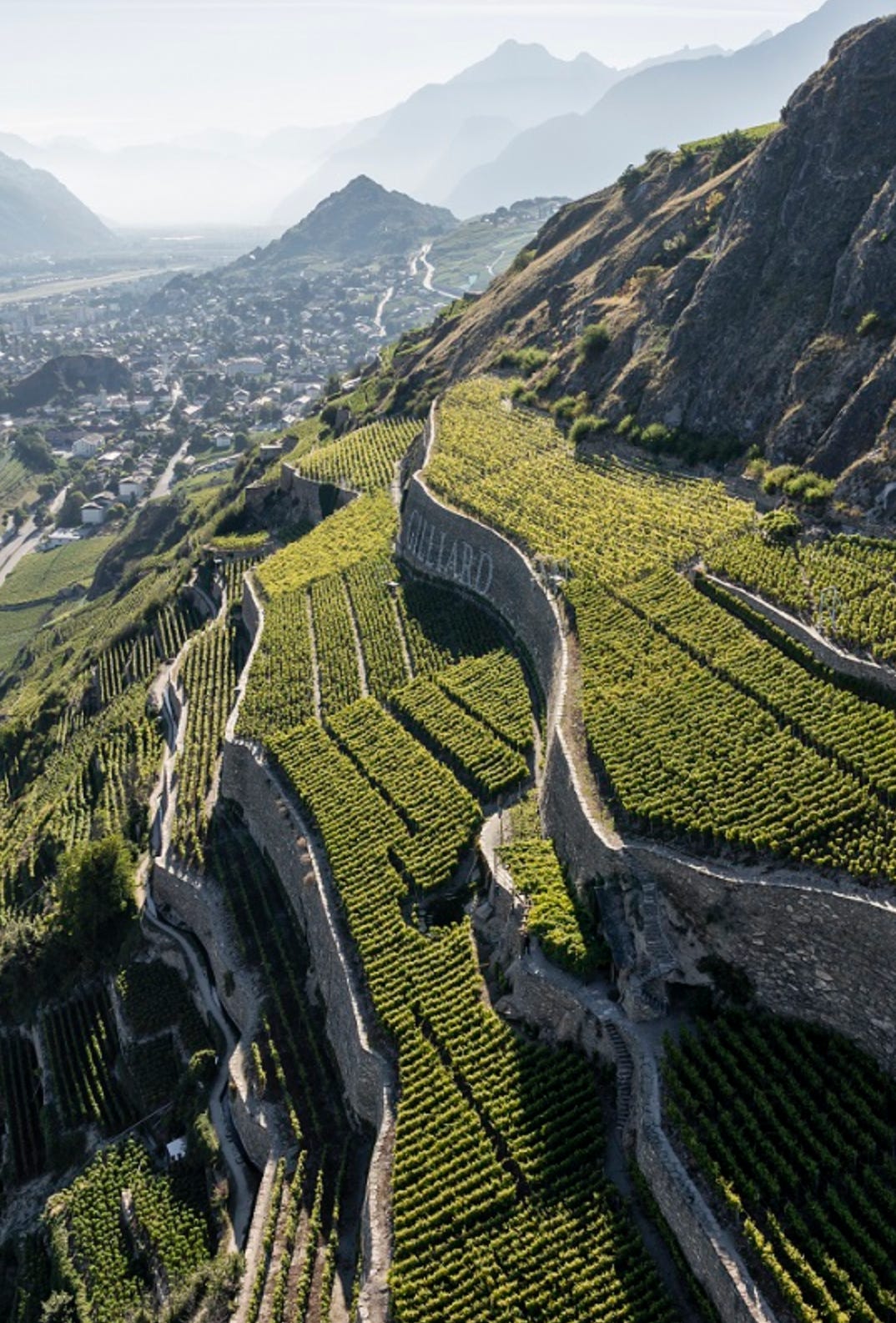Prohibition looming?
IN THE HEADLINES
Italy loses world's biggest wine producer title as extreme weather and disease hit output (euronews). Winemakers are expecting the smallest harvest in six years.
Kylie Minogue seeks wine expert to work with her, offering a salary of £55,000 to offering wine education and travel with her, including Melbourne, the UK and the US (Drinks Business).
Petrus collection helps Sotheby’s auction hit $9.3m sales in US (Decanter). The single-owner ‘Monumental Cellar’ sale featured what Sotheby’s described as a ‘century of Petrus’, spanning vintages from 1924 to 2015, as well as other Bordeaux wines in large formats.
Château Miraval, formerly owned by Brad Pitt and Angelina Jolie, signs exclusive deal with the Campari Group (The Drinks Business), suggesting the estate is looking to to promote its rosé as a pre-dinner drink, in the apéritif sector, rather than pursue the premium on-trade.
LEGISLATION 👩⚖️
Prohibition looming? 😳
The WHO shifts its alcohol narratives and the wine industry faces new challenges, writes Felicity Carter for Meininger’s.
Carter reveals that the WHO intends to make alcoholic beverages “less socially acceptable, like tobacco”.
The idea is to create an environment where people don’t want to drink.
In 2022, the WHO released a report called “Turning down the alcohol flow”, in which they proposed:
A global and comprehensive effort to remove alcohol marketing, as far as possible, from all contexts.
A ban on all advertising and restrictions on where alcohol can be sold and served, such as at sporting or cultural events.
Carter points out that young people in wine-consuming countries are already drinking far less than previous generations and the WHO’s new efforts to bring down alcohol consumption is likely to “turbo-charge” this trend even further.

SECRET’S OUT 🤫
Wine so good the Swiss won't share it
I came across this article written by Mary Elizabeth Williams, via Alder Yarrow.
The Swiss produce nearly 150 million bottles of wine each year and traditionally have consumed the vast majority of their wine within their own borders. Exports represent just 2% of the country’s output!
Williams wonders why she has never heard of them?
National pride is one factor.
Most cantons (states) in Switzerland have some kind of wine production and there is a culture around wine. The Swiss don't drink a lot of wine from other parts of Europe, although there is an appreciation for it. This kind of regional loyalty is common across Europe.
Added to this sense of pride is the relatively low output and the cost.
Swiss wine is reasonably priced for the Swiss, but does not necessarily translate to good value for the international customer (thanks to the enduring Swiss Franc). The cost of labor is relatively high and the growers work in very challenging conditions — altitude, steep slopes.

ITALY REPORT
What’s new in Chianti Classico?
Below is a condensed version of Sarah Heller’s MW report on the recent developments in Chianti Classico for Club Oenologique.
Chianti Classico is home to the world’s “most undervalued fine wines”, partly due to scale. At 7,000ha, Chianti Classico dwarfs regions like Barolo and Brunello at around 2,000ha each.
The relatively new Gran Selezione (GS) category (oldest vintage is 2010) is beginning to attract attention. Previously, many of the Riserva wines were “heavily extracted, murky wines collapsing under the weight of their new oak”.
The new GS* classification specifies a longer ageing time of 30 months – and oak is no longer a requirement.
Another shift in the GS classification is a tightening of the blending rules to require 90% Sangiovese and exclude international grapes (mainly Bordeaux varieties), which Heller feels tend to have an “outsized impact, bringing dark tones and thiol-driven notes that feel alien to Sangiovese”.
A decade in and the GS category is proving successful. Heller calls out the quality of the GS wines from Fontodi, Barone Ricasoli, Querciabella, and Isole e Olena.
“As Italy’s star has risen in the fine wine sphere, it feels apt that its most historical region should shine too; it only took 300 years for the Medici Grand Dukes’ vision to play out”.
Click here for Heller’s tasting notes.
*Gran Selezione wines are the longest aged in Chianti Classico and generally the most premium.
Thanks for reading the weekly wine wrap! No newsletter next week as I’ll be touring Boston ☺️🇺🇸🏒



